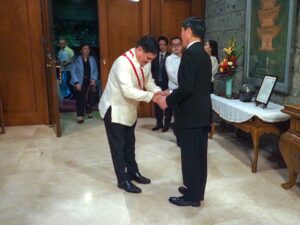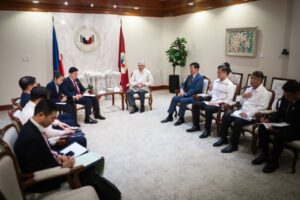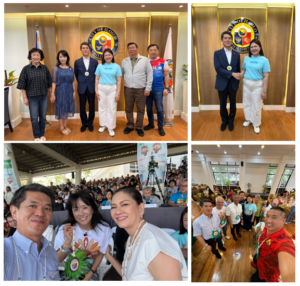With the recent concurrence of the Senate on the ratification of the Regional Comprehensive Economic Partnership (RCEP) agreement, the Philippines already signaled its positioning in the largest free trade area in the world.
According to Department of Trade and Industry Secretary Fred Pascual, the RCEP region accounts to 50% of the global manufacturing output, 50% of global automotive products, 70% of electronic products, and the main global value chain (GVC) hubs of China, South Korea, and Japan.
“Given this extent of economic activities, there are a lot of opportunities that foreign investors and local businesses can seize, explore, and develop, especially in the manufacturing sector and innovation. We want to Make it Happen in the Philippines, and we are ready,” Secretary Pascual stressed.
With the recent slew of investment pledges and approvals as a result of President Ferdinand R. Marcos Jr.’s foreign travels and investment promotion, the Trade Chief has raised the investment registration target of the Board of Investments (BOI) for 2023 from PHP1 trillion to PHP1.5 trillion.
“As we set to participate in the largest free trade bloc, investors should know that there is enough space and vast opportunities in the country. With the recent major economic reforms introduced, complemented by the country’s participation in RCEP, the country’s trade and investment policy direction is clear and stable,” Secretary Pascual added.
In addition to being an investment hub in the region, the Philippines has been vocal in stating that it has the necessary foundation to support a robust innovation ecosystem, from a strong intellectual property regime, the passage of the Philippine Innovation Act and Innovative Start Up Act, establishment of Regional Inclusive Innovation Centers (RIICs), and a number of Innovation and Technology Support Offices (ITSOs) around the country.
According to Assistant Secretary Allan B. Gepty, the country’s dynamic workforce, strategic location, and clear trade and investment policies are the core of its comparative advantage in the region. “Basically, it’s People, Place and Policy,” Assistant Secretary Gepty stressed.
The growing e-commerce industry is also an opportunity for the Philippines to grab its niche in the digital economy especially noting its strength in the IT-BPM sector. “That is why the comprehensive chapters on e-commerce, intellectual property, and services including financial services and telecommunication services in the RCEP agreement are important foundations in attracting more investments in the country,” Gepty added.


